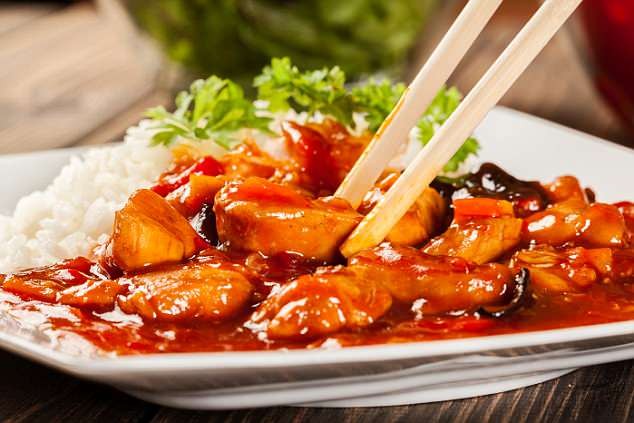Have you ever felt inexplicably tired after enjoying a delicious Chinese meal? You might be experiencing what was once known as “Chinese Restaurant Syndrome.” While the name has changed, the potential culprit behind that post-meal slump remains the same: monosodium glutamate, or MSG. Let’s delve into why Chinese food might be making you sleepy and what you can do about it.
What is MSG Symptom Complex?
The term “Chinese Restaurant Syndrome” is outdated. Medically, it’s now referred to as MSG symptom complex. This condition involves a cluster of symptoms that some individuals experience after consuming food containing MSG, a common flavor enhancer often used in Chinese cuisine.
The symptoms can vary from person to person, but often include:
- Headache
- Sweating
- Nausea
- Tiredness or fatigue
- Rapid heart rate
- Weakness
- Thirstiness
A 2014 study by Yeonsung and Kyung Hee universities in South Korea indicated that these symptoms were commonly reported by individuals after consuming MSG.
 Person feeling tired after eating, possibly due to MSG in their food.
Person feeling tired after eating, possibly due to MSG in their food.
The Science Behind MSG and Sleepiness
While the US Food and Drug Administration (FDA) considers MSG safe for consumption, and scientific evidence directly linking it to negative health effects is limited, many people report experiencing adverse reactions. The exact mechanisms behind MSG symptom complex are not fully understood.
MSG is a form of glutamic acid, an amino acid naturally present in our bodies and various foods, including cheese, meat, fish, mushrooms, tomatoes, and walnuts. However, when MSG is added as a concentrated flavor enhancer, it appears to trigger these unpleasant symptoms in sensitive individuals.
MSG: More Than Just Chinese Food
It’s crucial to note that MSG isn’t exclusive to Chinese food. It’s a common additive in many processed foods, including:
- Hot dogs
- Canned goods
- Crisps (potato chips)
- Processed snacks
Therefore, if you suspect MSG sensitivity, it’s essential to be mindful of food labels and ingredient lists beyond just Chinese takeout menus.
Managing MSG-Related Sleepiness and Other Symptoms
If you suspect that MSG is making you sleepy or causing other unpleasant symptoms, several strategies can help. Dr. Jane Leonard, a London-based GP and writer, suggests the following remedies for mild symptoms:
- Hydration: Drink plenty of water.
- Ginger or Peppermint Tea: These teas can help soothe the stomach and alleviate nausea. Ginger tea, in particular, may reduce nausea by influencing serotonin levels or reducing gut inflammation. Peppermint tea is believed to break down fat, aiding digestion and relieving nausea.
- Rest: Allow your body time to recover.
- Painkillers: Over-the-counter pain relievers can help manage headaches.
If you experience more severe symptoms like difficulty breathing, chest pain, or an allergic reaction, seek medical attention immediately.
Real-Life Examples of MSG Sensitivity
While the scientific community continues to investigate MSG symptom complex, anecdotal evidence and case studies highlight the potential for severe reactions. One case reported in the Indian Journal of Critical Care Medicine involved a 23-year-old man who lost his voice and ability to swallow after consuming MSG-laden Chinese fried rice. While this is an extreme example, it underscores the importance of recognizing and managing MSG sensitivity.
Conclusion: Listen to Your Body
While MSG is generally considered safe, some individuals are clearly more sensitive to its effects than others. If you consistently feel sleepy or experience other unpleasant symptoms after eating Chinese food or consuming processed foods, consider experimenting with MSG avoidance to see if your symptoms improve. By being mindful of your body’s reactions and making informed dietary choices, you can enjoy your meals without the unwanted side effects.
